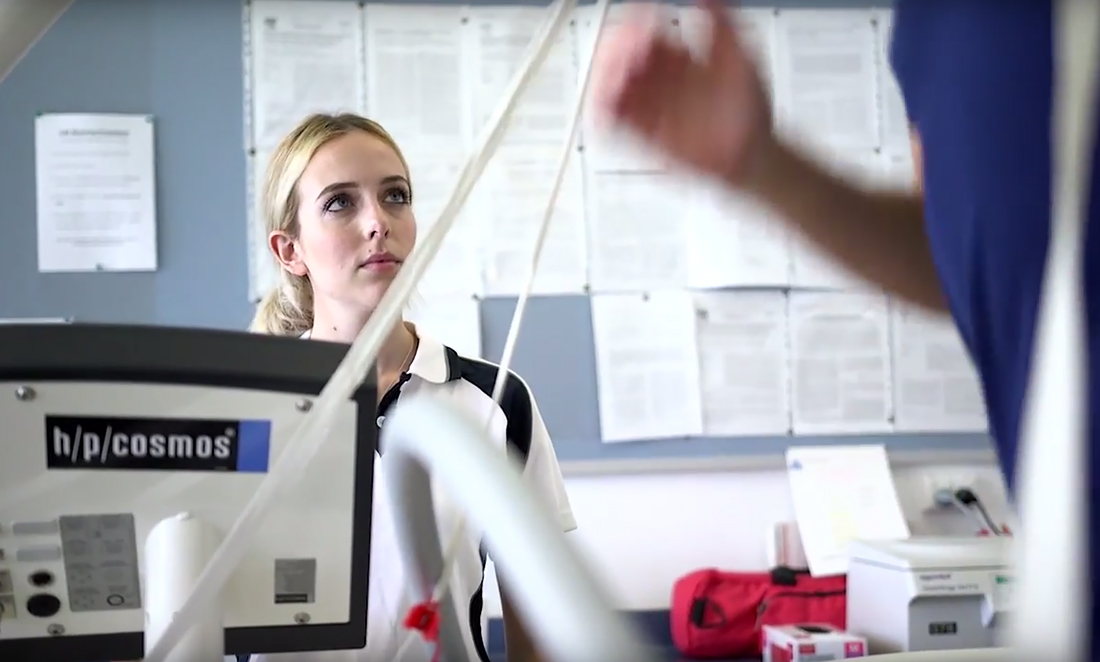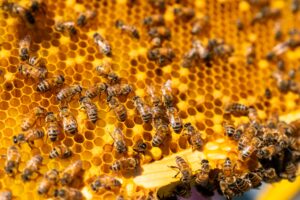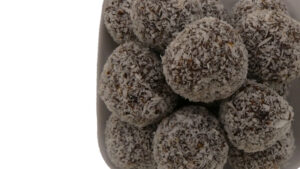Remember that one time your friend made you sign up for an early-morning gym class?
“Come,” they said. “It will be fun,” they said.
But when you rocked up groggy and morning-breathy, did you find Zumba and star jumps and skipping ropes, as promised?
Nope. An Arnie look-a-like had you planking and burpeeing and mountain climbing your way through a personal hell.
So when you sat down for that post-bootcamp brunch, what did you choose? An egg-white omelette? Or those dope-lookin’ waffles with extra whipped cream?
A recent study out of UWA asked the very same question. Or a very similar one.
TREAT YO’SELF
Honour’s student Natalya Beer from UWA’s School of Human Sciences asked if having a choice in exercise had anything to do with how people ate afterwards.
In a sneaky exercise, 58 people were invited to participate in a study that looked at their body’s response to exercise—or so they were told.
Really, it was their psychological response to a lack of autonomy that the researchers were interested in.
Half of the participants were allowed free range in the gym. They could choose between bike or treadmill, how hard they would work out, how long for, what time of morning they wanted to do it—even what tunes would be pumping in the background.
The other half were asked what their preferences were—and were then turned down. They had been allocated a partner, they were told, and they’d have to work out under their gym buddy’s preferred conditions.
And if their buddy wanted to sprint on the treadmill for an hour at 6 in the morning with heavy metal blasting in the background—well, too bad.
After they’d done the hard yards, everyone was offered a breakfast buffet, supposedly as recompense for participating in the study.

But this was actually where the real experiment kicked in—did the people with no choice in exercise eat differently to those who could do whatever they wanted?
AND NOW, FOR THE MOST RELATABLE RESULTS EVER
The participants who had no choice in how they worked out ate more food than their counterparts—and the food they ate was more unhealthy.
In fact, their energy intake post-exercise was almost double that of their counterparts.
Croissants, muffins, doughnuts—even lollies—were chosen over healthier options like fruit, wholemeal bread and Weetbix with low-fat milk.
Prior to the experiment, participants had been subjected to a screening that allowed researchers to strategically pair them up. Each set of gym buddies matched in sex, age, fitness, weight and height, meaning any difference in food consumption couldn’t be blamed on who they were as individuals.
So what do we think caused this super-calorific consumption?

LICENCE TO SNACK
The researchers suggested it may have been due to ‘self-licensing’, or the idea that, because they had previously behaved in a healthy way, an unhealthy choice was justified.
Other researchers have described this conscious compensating as “the eternal quest for optimal balance between maximising pleasure and minimising harm”.
And it seems to be more prevalent when people’s motivation is being controlled by external forces—say, for example, having to run a half marathon on a treadmill just because someone else wanted to.
But in situations where people can choose what they want to do, self-licensing is observed less.
What this could mean is that people might feel less inclined to treat (or cheat) themselves if they actually enjoyed their exercise.
Unfortunately, the researchers couldn’t actually test if this self-licensing mechanism was really at play, as asking those specific questions would have given the game away.
However, there was no evidence that any subconscious mechanisms were in effect. That is to say, we couldn’t blame it all on a lack of self-control—it all comes down to a conscious decision we make.
WORK IT OUT
This study could make us question how we approach exercise.
Fewer and fewer people in Australia are engaging in physical activity.
And, unsurprisingly, more and more people are overweight.
We all know physical activity is good for us.
But if we feel that we have no choice, is it going to pay off?
If we exercise a certain way because someone (a gym-junkie friend, a personal trainer, the internet) told us to but end up self-licensing that third slice of brownie, is it really worth it?
YOU DO YOU
It’s clear from this study that, to maximise health, you have to enjoy yourself.
There are many ways to reduce or burn calories—what works for you?
There’s no point forcing yourself to run that half marathon if you’re just going to seek another reward later, perhaps down the ice cream aisle.
So the next time a pal pressures you to come to bootcamp, throw research in their face, hit snooze and rock that evening yoga sesh instead. Or kick boxing. Or whatever new trend gets your blood racing.
Own your workout, and do what makes you happy.









